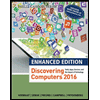Case One: WholeWorldBand: Digital Recording Studio WholeWorldBand is a collaborative online music and video platform that enables anyone to collaborate with others to create music videos. The service was founded by Kevin Godley, a musician and music video director, and is accessible via a Web-based app available on the iPhone and iPad and on Windows and MacOS computers. Anyone can contribute to WholeWorldBand using just the camera and microphone in their computer or mobile device. The service enables users—whatever their level of musical ability—to record and perform with music legends and friends. Using WholeWorldBand, you can start a video-recording session that others may join, create your own personal video mix with up to six performers, and then share the results with your friends and fans via Facebook, Twitter, or YouTube. Users can also pay to collaborate with other musicians who have posted their own content. Collaborating on a project might mean providing new audio or video components or remixing existing ones. WholeWorldBand uses a sophisticated digital rights management system to ensure that artists earn revenue for the work they contribute—if your work gets used, you get paid. WholeWorldBand provides users the opportunity to perform and record with popular artists. A number of major recording artists have already uploaded tracks including The Edge (U2), Ronnie Wood (Rolling Stones), Taylor Hawkins (Foo Fighters), Stewart Copeland (The Police), Liam Ó Maonlaí (Hot House Flowers), Michael Bublé, Phil Manzanera (Roxy Music), Dave Stewart (Eurythmics), and Danny O’Reilly (The Coronas). The platform generates revenue from registered users who purchase subscriptions (or sessions) and from royalties paid by third parties in situations where users have shared and distributed content using the app or the Web site. Each session artist is entitled to receive a share of the revenue generated when other registered users purchase sessions for the purpose of creating contributions and/or mixes in relation to their original track. Keeping track of contributing artists, royalty payments, and the necessary revenue splits among artists, third parties, and WholeWorldBand can become quite detailed and tedious. Critical Thinking Questions 1. Identify some of the challenges associated with building an information system infrastructure to support this new service. Would cloud computing be an appropriate solution to address these challenges? Why or why not? 2. Would WholeWorldBand be likely to employ SQL, NoSQL, or a mix of both kinds of databases? Explain your answer. 3. Go to the WholeWorldBand Web site at www.wholeworldband.com/about, and find its Terms of Use. Summarize the measures outlined to protect the unauthorized use of copyrighted material. Do you think these measures are adequate? Why or why not?
Case One: WholeWorldBand: Digital Recording Studio
WholeWorldBand is a collaborative online music and video platform that enables anyone to collaborate with others to create music videos. The service was founded by Kevin Godley, a musician and music video director, and is accessible via a Web-based app available on the iPhone and iPad and on Windows and MacOS computers. Anyone can contribute to WholeWorldBand using just the camera and microphone in their computer or mobile device. The service enables users—whatever their level of musical ability—to record and perform with music legends and friends. Using WholeWorldBand, you can start a video-recording session that others may join, create your own personal video mix with up to six performers, and then share the results with your friends and fans via Facebook, Twitter, or YouTube. Users can also pay to collaborate with other musicians who have posted their own content. Collaborating on a project might mean providing new audio or video components or remixing existing ones.
WholeWorldBand uses a sophisticated digital rights management system to ensure that artists earn revenue for the work they contribute—if your work gets used, you get paid. WholeWorldBand provides users the opportunity to perform and record with popular artists. A number of major recording artists have already uploaded tracks including The Edge (U2), Ronnie Wood (Rolling Stones), Taylor Hawkins (Foo Fighters), Stewart Copeland (The Police), Liam Ó Maonlaí (Hot House Flowers), Michael Bublé, Phil Manzanera (Roxy Music), Dave Stewart (Eurythmics), and Danny O’Reilly (The Coronas).
The platform generates revenue from registered users who purchase subscriptions (or sessions) and from royalties paid by third parties in situations where users have shared and distributed content using the app or the Web site. Each session artist is entitled to receive a share of the revenue generated when other registered users purchase sessions for the purpose of creating contributions and/or mixes in relation to their original track. Keeping track of contributing artists, royalty payments, and the necessary revenue splits among artists, third parties, and WholeWorldBand can become quite detailed and tedious.
Critical Thinking Questions
1. Identify some of the challenges associated with building an
2. Would WholeWorldBand be likely to employ SQL, NoSQL, or a mix of both kinds of
3. Go to the WholeWorldBand Web site at www.wholeworldband.com/about, and find its Terms of Use. Summarize the measures outlined to protect the unauthorized use of copyrighted material. Do you think these measures are adequate? Why or why not?
Trending now
This is a popular solution!
Step by step
Solved in 3 steps









